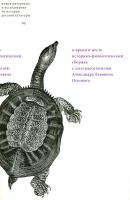И время и место: Историко-филологический сборник к шестидесятилетию Александра Львовича Осповата. Сборник статей
Чтение книги онлайн.

Читать онлайн книгу И время и место: Историко-филологический сборник к шестидесятилетию Александра Львовича Осповата - Сборник статей страница 46
Название: И время и место: Историко-филологический сборник к шестидесятилетию Александра Львовича Осповата
Автор: Сборник статей
Жанр: История
Серия: Новые материалы и исследования по истории русской культуры
isbn: 978-5-98379-101-5
isbn:
16 Бакунин М. Исповедь // Алексеевский равелин. Л., 1990. С. 305.
17 «Не говоря о великости преступления, Вам должно быть очень смешно, Государь, что я один, безымянный, бессильный, шел на брань против Вас, Великого Царя Великого Царства! Теперь я вижу ясно свое безумие, и сам бы смеялся, если бы мне было до смеху, и поневоле вспоминаю одну баснь Ивана Андреевича Крылова… Но тогда ничего не видел, а шел как угорелый на явную гибель» (Там же. С. 280).
18 Герцен А.И. Собрание сочинений: В 30 т. М., 1959. Т. 16. С. 149.
19 «Без связей, без средств, один с своими замыслами посреди чуждой толпы, я имел только одну сподвижницу: веру, и говорил себе, что вера переносит горы, разрушает преграды, побеждает непобедимое и творит невозможное; что одна вера есть уже половина успеха, половина победы: совокупленная с сильной волей, она рождает обстоятельства, рождает людей, собирает, соединяет, сливает массы в одну душу и силу; говорил себе, что, веруя сам в русскую революцию и заставив верить в нее других, европейцев, особливо славян, впоследствии же и русских, я сделаю революцию в России возможной, необходимой» (Бакунин М. Исповедь… С. 294).
20 Салтыков-Щедрин М.Е. Собрание сочинений: В 20 т. М., 1971. Т. 12. С. 250.
21 Там же. С. 251.
22 Розанов В.В. Уединенное. М., 1990. Т. 2.
С. 392-393-
23 Леонтьев К.Н. Полное собрание сочинений и писем. СПб., 2006. Т. 7. Кн. 2. С. 54.
24 Достоевский Ф.М. Полное собрание сочинений: В 30 т. Л., 1976. Т. 15. С. 488.
David M. Bethea
Ghostlier Demarcations, Keener Sounds
Personality and Verbal Play in Pushkin’s Lyceum Verse
Pushkin’s biographers have often pointed out that the Lyceum played a special role in the poet’s psychic development, as a place (and a time) where a troubled youth’s better angels could be appealed to and where lifelong friendships based on shared experience and bonds of trust could be cemented.1 From Annenkov to Lotman to Bin yon, these six years of structure and routine become the “family life” that the young Pushkin did not have at home with Sergei Lvovich and Nadezhda Osipovna: “Nam tselyi mir chuzhbina;/ Otechestvo nam Tsarskoe Selo.” But the Lyceum was crucial to Pushkin’s development in another respect: it was a place that lent itself almost magically to poetical musing. As we learn from the famous opening to chapter 8 of Eugene Onegin:
В те дни, когда в садах Лицея
Я безмятежно расцветал,
Читал охотно Апулея,
А Цицерона не читал,
В те дни в таинственных долинах,
Весной, при кликах лебединых,
Близ вод, сиявших в тишине,
Являться муза стала мне.
Моя студенческая келья
Вдруг озарилась; муза в ней
Открыла пир младых затей,
Воспела детские веселья,
И славу нашей старины,
И сердца трепетные сны.
[In days when I still bloomed serenely
Inside our Lycée garden wall
And read my Apuleius keenly,
But read no Cicero at all —
Those springtime days in secret valleys,
Where swans call and beauty dallies,
Near waters sparkling in the still,
The Muse first came to make me thrill.
My student cell turned incandescent;
And there the Muse spread out for me
A feast of youthful fancies free,
And sang of childhood effervescent,
The glory of our days of old,
The trembling dreams the heart can hold.]2
The valleys that are “secret, mysterious” (tainstvennye) because they first gave birth to private reverie; the lakes and the swans (swans being a Derzhavinian metaphor for poetry to Pushkin and his Lyceum mates); the Apuleius whose adventure stories and sexual license are much more the attractive forbidden fruit for these teenagers than stern Cicero; the notion of withdrawal into the gardens (“v sadakh”) and into the student cell (kel’ia) that somehow miraculously opens out into an illumination called the Muse – all this is integral to the “blooming” (“ia bezmiatezhno rastsvetal”) of the future poet. In the essay to follow I propose to first give a brief sketch of the young Pushkin against the background of his Lyceum experience and then to examine aspects of his earliest attempts at verse in an effort to catch glimpses of the mature poet in the boy wonder. My point is not to raise the status of the juvenilia, but rather to see the latter as the creative laboratory wherein, regardless of initial artistic success or failure, different genre-specific “voice zones” are crystallizing and a consistent uniting lichnosf СКАЧАТЬ